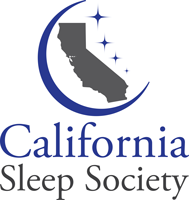
By: Andrew S. Binder, MD, FAASM, FCCP
All of us in healthcare hear patients complain of fatigue. “Doc, I’m tired of being tired,” is what I have heard so many times in my career that I use it as the title of talks that I give to medical residents as well to the lay public. For those of us in the sleep field, I think we have a unique opportunity to address this complaint as well as educate our non-sleep colleagues about how to approach the “tired” patient. When I ask an audience of non-sleep physicians how frequently, in a typical day in their office, they encounter a patient complaining about being tired, the response is “all the time!”
I have developed my own way to deal with this complaint. I believe we should consider three types of fatigue, which are not mutually exclusive:
- sleepiness,
- exercise intolerance, and
- psychophysiologic.
Let’s look at each of these in more detail:
- Sleepiness– As sleep practitioners, we are pretty good at identifying this symptom and we have tools such as the Epworth Sleepiness Scale, which incorporates all of the questions which help us sort out sleepiness from other types of fatigue. We can then proceed to make a diagnosis with polysomnography (PSG) and the multiple sleep latency test (MSLT). Nevertheless, some individuals just don’t recognize sleepiness as their problem because they have been sleepy for so long, it has become their baseline and they have come to accept it as normal. I remember a patient of mine who did not think he was sleepy, but rather he was convinced that he was depressed. He then told me that he knew the location of every Starbucks on his sales route, which led me to remark that “Starbucks is not an antidepressant!” His MSLT confirmed his pathologic sleepiness with a mean sleep latency of less than two minutes. If a patient is sleepy, they have a sleep disorder until proven otherwise.
- Exercise intolerance– When a patient complains to the cardiologist or the pulmonologist that they are tired, the assumption is that their cardiac or pulmonary status needs additional evaluation or a change in therapy. Of course, patients with heart or lung disease or anemia can be sleepy as well exercise intolerant, but the treatment of each condition must be addressed separately.
- Psychophysiologic– This group of individuals includes patients who are depressed, anxious, insomniac, or suffer from fibromyalgia. In general, these patients are “tired” but not sleepy. Unfortunately, too many patients presenting to the non-sleep primary care physician or psychiatrist who complain that they are tired or have “low energy”, are reflexively thought to be depressed. We know that sleepy patients such as those with narcolepsy are often depressed or anxious, but the treatment of their sleep disorder and their mood disorder are different. Antidepressants don’t effectively treat sleepiness, and wakefulness promoting medications don’t treat mood disorders.
Finally, I want to comment on two other common complaints of “tired” patients: brain fog and attention deficit. Too often these patients will be given stimulant medication without considering evaluation of the underlying sleep disorder which is causing these patients to be sleepy.
Those of us in the sleep field have a great opportunity and obligation to educate the public as well as our colleagues about the importance of recognizing sleep disorders and the consequences of misdiagnosis of the “tired” patient.
